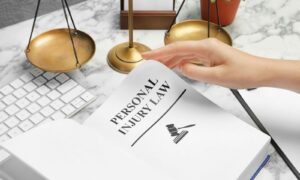Personal injury lawyers are a crucial part of the legal landscape, providing essential services to individuals who have suffered harm due to the negligence or misconduct of others. These attorneys specialize in tort law, a branch of civil law that deals with cases where one person’s actions cause injury or harm to another. From car accidents and medical malpractice to workplace injuries and defective products, Personal Injury Lawyer in Houston, Texas help their clients secure compensation for their physical, emotional, and financial losses.
In this article, we will explore in detail who personal injury lawyers are, what kind of work they do, their qualifications, the different types of personal injury cases they handle, the legal process involved in filing a claim, and why their role is vital in ensuring justice for victims.
What Is Personal Injury Law?
Personal injury law, also known as tort law, is designed to protect individuals who have been harmed by the actions or negligence of another person, company, or entity. This branch of law provides legal remedies and monetary compensation for damages suffered due to wrongful acts.
The primary aim of personal injury law is to make the injured party “whole” again — that is, to provide them with compensation that can help restore them to the position they were in before the injury occurred. This includes covering medical expenses, lost wages, pain and suffering, and other associated costs.
Who Are Personal Injury Lawyers?
Personal injury lawyers are legal professionals who represent clients (plaintiffs) who claim to have been physically or psychologically injured due to the negligence or wrongdoing of another party. This party can be an individual, company, government agency, or other entity. These lawyers are experts in tort law and are skilled in negotiation, litigation, and case management.
They typically work on a contingency fee basis, meaning they only get paid if they win the case or obtain a settlement for their client. This model allows access to legal services even for clients who may not have the resources to pay upfront legal fees.
Educational and Professional Qualifications
To become a personal injury lawyer, an individual must go through the same basic educational path as any other attorney:
- Bachelor’s Degree: The journey begins with earning an undergraduate degree, often in fields like political science, history, or criminal justice.
- Law School: The aspiring lawyer must then attend an accredited law school and earn a Juris Doctor (JD) degree, which usually takes three years.
- Bar Exam: After graduating from law school, the individual must pass the bar exam in the state where they intend to practice law.
- Licensing and Certification: Once licensed, lawyers may choose to pursue further certification in personal injury law from organizations like the National Board of Trial Advocacy.
- Continuing Education: Personal injury lawyers are also required to participate in continuing legal education (CLE) to stay updated on laws and regulations.
What Does a Personal Injury Lawyer Do?
The duties of a personal injury lawyer are extensive and can vary depending on the case, but generally include the following:
Case Evaluation
The first step is evaluating whether the client has a viable case. The lawyer will assess the facts, determine liability, and decide whether the client is entitled to compensation. They consider the evidence, potential defendants, the extent of the injuries, and whether the case meets the statute of limitations.
Legal Advice and Guidance
A personal injury lawyer provides legal counsel to help clients understand their rights, the legal process, and the best course of action. They explain legal jargon, offer realistic expectations, and guide clients through every stage of the case.
Investigation
In order to build a strong case, personal injury lawyers conduct a thorough investigation. This may include:
- Gathering police reports
- Interviewing witnesses
- Reviewing medical records
- Examining accident scene photos and videos
- Consulting with experts in accident reconstruction, medicine, and economics
Filing Legal Documents
Once there is enough evidence to support the claim, the attorney will file the necessary legal paperwork, such as complaints, motions, and discovery documents. They ensure all documents are filed within the appropriate deadlines.
Negotiation with Insurance Companies
A large part of a personal injury lawyer’s job involves negotiating with insurance adjusters. Insurance companies often try to minimize payouts. Skilled personal injury lawyers know how to present evidence effectively and advocate for a fair settlement.
Representing Clients in Court
If a settlement cannot be reached, the case may go to trial. In such cases, the personal injury lawyer represents their client in court, presenting arguments, examining witnesses, and persuading a judge or jury to award compensation.
Ensuring Full Compensation
Personal injury lawyers aim to secure compensation for:
- Medical expenses (past and future)
- Loss of income
- Loss of earning capacity
- Pain and suffering
- Emotional distress
- Property damage
- Rehabilitation and therapy costs
Common Types of Personal Injury Cases
There are many different situations where personal injury law may apply. Some of the most common types of personal injury cases include:
Car Accidents
Car accidents are one of the leading causes of personal injury claims. A lawyer helps victims secure compensation from the at-fault party or their insurer. These cases often involve complex liability issues and insurance negotiations.
Slip and Fall Accidents
Slip and fall cases involve injuries that occur due to unsafe conditions on someone else’s property. Property owners have a legal duty to maintain a safe environment, and failure to do so can result in liability.
Medical Malpractice
Medical malpractice occurs when a healthcare provider fails to provide the appropriate standard of care, resulting in injury or death. These are often complicated cases requiring expert testimony.
Workplace Injuries
Workers injured on the job are typically entitled to workers’ compensation, but in some cases, a third-party personal injury claim may be appropriate. A personal injury lawyer can help determine the best route to recovery.
Product Liability
When a defective product causes harm, manufacturers and retailers can be held liable. These cases may involve dangerous drugs, faulty electronics, unsafe vehicles, and more.
Wrongful Death
In cases where negligence leads to a person’s death, their family members may file a wrongful death lawsuit. A Wrongful Death Attorneys helps them pursue compensation for funeral costs, loss of companionship, and financial support.
Dog Bites
Owners can be held responsible if their dog injures someone. Personal injury lawyers help victims receive compensation for medical bills, disfigurement, and emotional trauma.
The Legal Process in a Personal Injury Case
The timeline and steps of a personal injury case may vary depending on complexity, but generally follow this structure:
1. Initial Consultation
The attorney evaluates the case and advises on legal options. This is usually free of charge.
2. Investigation
An in-depth investigation is conducted to collect all relevant evidence.
3. Medical Treatment and Documentation
Clients receive necessary medical treatment, and all records are gathered to support the claim.
4. Demand Letter
Once the client’s condition stabilizes, a demand letter is sent to the at-fault party or their insurer, outlining the facts, injuries, and a demand for compensation.
5. Negotiation
Negotiations may follow, with the goal of settling without litigation.
6. Filing a Lawsuit
If a fair settlement can’t be reached, the lawyer files a lawsuit to take the case to court.
7. Discovery Phase
Both sides exchange evidence and conduct depositions.
8. Mediation or Trial
Before trial, mediation may be attempted. If unresolved, the case goes to trial where a judge or jury decides the outcome.
Why Personal Injury Lawyers Are Important
Personal injury lawyers level the playing field for injured individuals. Insurance companies and corporations often have vast resources to protect their interests. Without a knowledgeable advocate, victims may not receive fair compensation.
These lawyers also help:
- Navigate complex legal procedures
- Meet filing deadlines
- Calculate fair compensation
- Access expert witnesses
- Avoid common legal pitfalls
Additionally, personal injury lawyers provide emotional support. They handle legal burdens so clients can focus on recovery.
Challenges Personal Injury Lawyers Face
While the work is rewarding, it also comes with challenges:
- Emotional strain from dealing with severely injured clients
- High caseloads and time pressures
- Financial risk of working on contingency
- Dealing with uncooperative insurance companies
- Difficulty in proving negligence in certain cases
Despite these challenges, many personal injury lawyers are passionate about helping people achieve justice and recover from devastating injuries.
How to Choose the Right Personal Injury Lawyer
Choosing the right lawyer can significantly affect the outcome of a case. Here are some tips:
- Experience: Look for someone with extensive experience in personal injury law, especially in similar cases.
- Track Record: Ask about past settlements and trial outcomes.
- Communication: Choose a lawyer who communicates clearly and keeps you informed.
- Resources: Ensure the firm has the necessary resources to handle your case.
- Client Reviews: Online reviews and testimonials provide insight into past client satisfaction.
- Contingency Fees: Make sure you understand the fee structure and any other costs involved.
Personal Injury Law and Technology
Technology is transforming how personal injury lawyers work. From using AI to predict case outcomes to leveraging digital records and cloud storage for case management, the legal landscape is becoming more efficient. Video conferencing, virtual hearings, and case management software all help improve client service and streamline operations.
Final Thoughts
Personal injury lawyers play a vital role in our justice system. They advocate for individuals who have been wrongfully injured, ensuring they receive the compensation they need and deserve. Their work combines legal expertise, empathy, and negotiation skills to help clients rebuild their lives.
Whether you’re dealing with a car accident, a defective product, or medical malpractice, having an experienced personal injury lawyer by your side can make all the difference. Understanding who these professionals are and how they work empowers individuals to make informed decisions in the aftermath of an injury.
If you or a loved one has been harmed due to someone else’s negligence, consulting a personal injury lawyer could be the first step toward recovery and justice

































